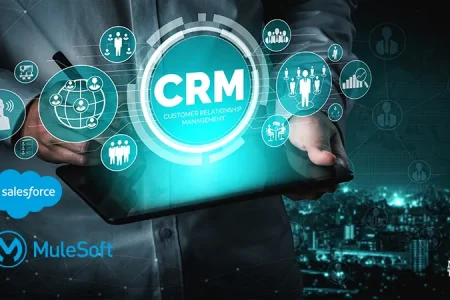Why It Matters:
- Low-Code Integration: Admins can use out-of-the-box connectors within Flow Builder to integrate org-to-org and third-party data into workflows. For instance, an autonomous sales agent can be programmed to automatically create an invoice in Quickbooks when a new order is updated.
- Salesforce API Catalog: A centralized repository of APIs from Salesforce, MuleSoft, and Heroku, allowing admins to enhance AI agent skills with new topics and actions. For example, admins can develop an inventory topic utilizing integrations with SAP.
- MuleSoft Direct for Data Cloud: Enables users to deploy pre-built integrations for connecting data from sources like Google Drive, Microsoft SharePoint, and Confluence to Data Cloud. This integration supports faster, more personalized responses by grounding AI prompts within Service Cloud.
- MuleSoft Topic Center: Developers can publish agent topics or groupings of specific information to improve Agentforce Agents’ effectiveness. For instance, a hardware device topic can help assess if an employee needs a laptop replacement, incorporating asset management APIs for a more contextual response.
- MuleSoft AI Chain: An open-source project that facilitates interaction with LLMs, vector databases, and APIs, enabling developers to build custom agents. For example, connecting Jira with multiple LLMs can enhance bug diagnosis and customer sentiment analysis.
Salesforce Perspective: “As organizations integrate AI agents and assistants into their workflows, a simplified approach to connecting core systems and applications with LLMs is essential. MuleSoft’s latest innovations pave the way for scalable, context-aware AI that empowers every team to build a robust AI foundation,” said Andrew Comstock, VP of Product Management, MuleSoft.
Customer Perspective: “MuleSoft’s powerful integration capabilities have enabled us to securely connect data and applications to drive our business objectives. Our API-led data connectivity approach has significantly improved interoperability and internal interactions,” said Matthew Randall, Head of Software Development and Integration, Aston Martin Lagonda Ltd.
SOURCE: Salesforce

